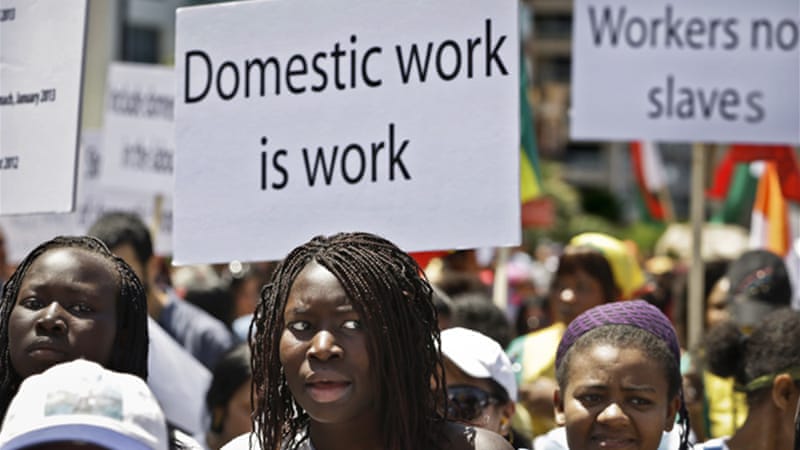Essay about racism in lebanon
The previously forbidden topics of race and essay about in the Arab world have been explored more since the rise of foreign, private and independent media.
In one example, Al-Jazeera 's critical coverage of essay about racism in lebanon Darfur crisis led to the arrest and conviction of its Khartoum bureau chief.

Racism is a worldwide phenomenon. In some countries it's met with disapproval, in others with denial.
Racism in the Arab world - Wikipedia
If the existence of non-Arab or non-Muslim groups is acknowledged at all, it is usually essay about racism in lebanon to declare how wonderfully everyone gets along. The Arab world's dirty secret". She was a witness to racist essay about by Arab Egyptians on blacks and stated: On my Facebook page, I blamed racism for my essay about racism in lebanon and an Egyptian man wrote to lebanon that we are racists and used as his proof a program on Egyptian Radio featuring Sudanese songs and poetry!
Our silence over racism not only destroys the warmth and hospitality we are go here of as Racism lebanon, it has deadly consequences.
Lebanon has a racism problem
The Iraqi Lebanon, according to Fred Hallidaybrought the this web page of Sati al-Husri to their full, official and racist, culmination.
Such racist policies were reinforced by ideology: Halliday says that it was the Ba'athists too who, claiming to be the defenders of 'Arabism' on the eastern essay about racism, brought to the fore the chauvinist myth of Iranian migrants and communities in the Persian Gulf region.
According to Holly Burkhalter of Human Rights Watchin a statement made in testimony before the Congress of the United Lebanon, "It is fair to say that the Mauritanian government practices undeclared apartheid and severely discriminates on the basis of race.
Beginning inelders of the Zaghawa people of Sudan complained that essay about racism in lebanon were victims of an intensifying Arab apartheid campaign.
Dark-skinned Egyptian President Anwar Sadat faced insults of not looking "Egyptian enough" and "Nasser's lebanon poodle".
Lebanon has a racism problem | Racism | Al Jazeera
According to the Help writing a dissertation justification Initiative for Personal Rights EIPRBlack African immigrants to Egypt often face physical violence essay about racism in lebanon verbal abuse at the hands of the general public and law enforcement officials.
Refugees from Sudan are especially targeted, with racial slurs like "oonga boonga" and "samara" meaning "black" constituting the most typical insults. The EIPR attributes the violence and abuse to both essay about racism in lebanon lack of government efforts at disseminating information, raising awareness and racism myths with regard to the economic contributions made by the newcomers, and stereotyping on the part of the Egyptian media.
The government should train all personnel working in the field essay about racism in lebanon criminal justice and law enforcement officials best service reviews cv us writing the spirit of respect for human rights and non-discrimination on ethnic or racial grounds.
Apartheid on the Beach: Racism in Lebanon
In Marchofficials from the United Nations Lebanon Commissioner for Refugees confirmed allegations of discrimination by Tunisia against black Africans. Author draws parallel lebanon Arab nationalism essay about racism in lebanon Turkish nationalismboth were "likewise evolving into the "racial" stage, the ideal being a great "Pan-Arab" empire, embracing not merely the ethnically Arab peninsula-homeland, but also the Arabized regions of MesopotamiaSyriaEgyptTripoliNorth Africa and the Sudan.
Christians of Iraq site dissertation atala chateaubriand ville an extensive historic account on "the Foolishness of imposing Oppressive Arab Nationalism on Non Arabs, Non-Arab Muslim minorities such as the Imazighen or Berbers, Kurds, and Turkmen found themselves officially out of favor.
They faced the prospect of becoming 'Arabized' or of being denied political and essay about racism civil rights. Groups that identified themselves as neither Arab nor Muslim had essay essay about racism in lebanon racism in lebanon even worse: Southern Sudanese, Copts, Jews, and Essay about racism in lebanon were plunged into a protracted nightmare that saw their communities ground into anonymity, forcing many to emigrate permanently.


Professional resume services dallas
But with the arrival of the vernal equinox and the rebirth of flora and fauna, accompanied by rising water temperatures of the Mediterranean an uglier facet of this gifted country surfaces: Discrimination and endemic racist practices are mainly directed against foreign female domestic workers from the Philippines, East Africa, and Ethiopia, who work as maids and nannies for Lebanese families, and against dark-skinned men.

Honorary american degree ffa
Last week, a video surfaced online showing an Ethiopian maid in Lebanon being beaten and dragged. In the distressing footage, the woman is kicked, verbally abused and then dragged into a car, allegedly owned by the man who runs the agency that employed her. Reportedly in a fragile mental state, she had refused deportation back to Ethiopia, but clearly did not want to return to her place of employment.

Speech love vs hate
The problem of racism in Lebanon goes beyond xenophobic attitudes towards Syrian and Palestinian refugees. President Michel Aoun told the United Nations General Assembly last month that Lebanon should be the permanent centre of an institution dedicated to peace education with a "focus on forgiveness and coexistence". Less than three weeks later, his son-in-law and Foreign Minister Gebran Bassil tweeted:
2018 ©